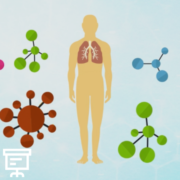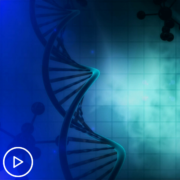Could Advances in Lung Cancer Research Benefit You? from Patient Empowerment Network on Vimeo.
Expert Dr. Martin Edelman reviews the latest lung cancer research and explains how it may impact patient care. Want to learn more? Download the Program Resource Guide here.
Dr. Martin J. Edelman is Chair of the Department of Hematology/Oncology and Deputy Director for Clinical Research at Fox Chase Cancer Center. More about this expert here.
View more from Fact or Fiction? Lung Cancer
Related Programs:
Transcript:
Patricia:
Let’s start with an overview of lung cancer’s research. Can you tell us a little bit about the field right now?
Dr. Edelman:
So, I think the field has been remarkable over the last few years. There’s been more progress, more drugs, more things that have happened in the last five years than probably the prior 50. It’s been an amazing time both for developments in microbiology as well as in immunotherapy of the disease, which is exciting for all concerned.
For patient’s, of course – really a promise of longer, better lives, even cures where we previously did not see any in advanced disease. For the scientists – an amazing amount of new information. And for clinicians and clinical investigators – just almost too many questions for us to answer.
Patricia:
It sounds like the field is really advancing quickly. What do you attribute that to?
Dr. Edelman:
Well, you know, I think there are a number of things. Everybody always talks about breakthroughs, but breakthroughs really happen after decades of other work. And what’s happening now is really a result of many, many years of different types of work. There were our colleagues in immunology who built this area of cancer immunology for many years – I have to say with much skepticism from many, myself included.
The advances in molecular biology – our abilities to do things with tumors to determine genetics at a rate and a pace and a cost that was previously unimaginable. All of these things have developed in the last few years but really are a result of the decades of work before that. If you look at immunotherapy – probably one of our biggest areas of progress – the roots of that are a century old. So, nothing’s really new. It’s just now we have the technology and the ability to really use it. And then I would also say that we’ve created the infrastructure that lets us test this – the people who have done the studies, the endpoints for the studies, the expertise in doing clinical trials – that also was there for decades, and we frequently were kind of ridiculed at times.
Oh, you’re just testing this drug against that drug, but the reality is is it was those incremental advances. It was the ability to know the endpoints, to refine the populations, to develop the infrastructure that allowed for all of this to happen.
Patricia:
Dr. Edelman, as a researcher in the field, tell us why you’re hopeful about lung cancer research.
Dr. Edelman:
Well, I think that we have gone from trials with very small incremental improvements and frequently a very slow degree of progress where if we had a positive study every two or three years, we were thrilled – to the point where we’ve had an avalanche of positive studies. I don’t think my younger colleagues know what a negative trial looks like anymore. Even our negative trials are pretty impressive. We’ve had studies where an immunotherapy agent was compared with chemotherapy. And it was designed to show that the drug would be better.
And it was just as good, and that was a negative study. That’s the correct interpretation, but still I would point out that that’s quite remarkable because these other drugs had taken us 25-30 years to develop. And now we have another drug with a very different mechanism of action that’s as good potentially. That’s impressive. I think we’ve just had an amazing degree of progress in the last few years. We have far more drugs. We understand far more about the disease – the technology at every point from diagnosis to assessment of response to the ability to evaluate better what we’re not doing well. So, our studies now frequently have biopsies before, during, and after treatment in a way of trying to figure out why is stuff working or not working.
Back in 2006 or so, I proposed a study. We ended up doing it, but it took two or three years because we were requiring a biopsy result – actually, not even a new biopsy but just an archived specimen from the original biopsy to determine eligibility, and there was strong pushback that we would never be able to do that. And now, we routinely are getting biopsies and re-biopsying, and that’s over a brief period of time.
So, we’re getting to get better understanding of the disease, and why stuff works and doesn’t work. And I think that that’s why our progress will accelerate. And I would again emphasize progress only happens – real progress – only through clinical trials. We’ve cured a lot of mice for many decades. A mouse is not a person. You actually have to do the studies patient by patient, and I think we are making substantial progress. We almost have too many things to test right now.







